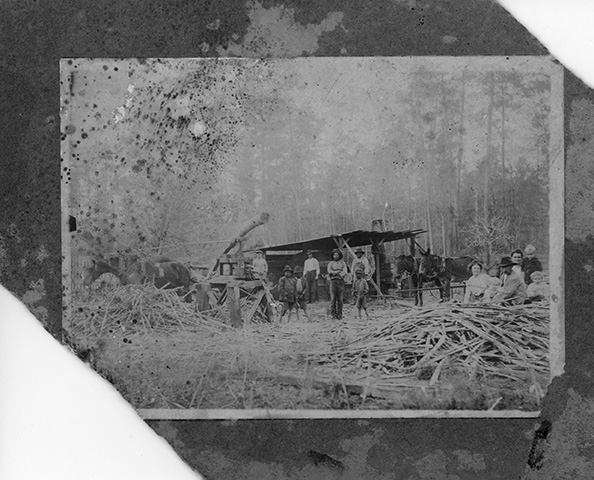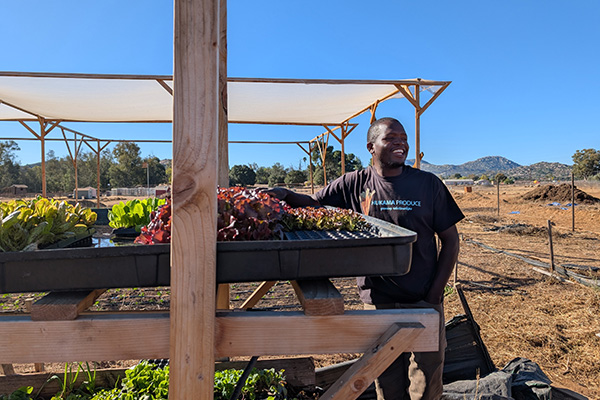Want to Celebrate Black History Month? Start By Sharing Stories
- By Erin Mittelstaedt
- Reading Time: 3 mins.
My parents are originally from Louisiana, and when they came to visit this past weekend they shared a photograph they’d found among my grandparents’ belongings. The monochrome image captures a moment in time. In it, a pile of harvested sugarcane waits for processing at a mill; behind it stand a lean-to and a dozen Black and white men, women, and children. We think the photo was taken around 1880 in Natchitoches, Louisiana. Though we don’t know much about the people in the picture, given the time and place, the Black people in the photo were likely formerly enslaved sharecroppers.

The photo reminded me of an article that The FruitGuys’ copyeditor and writer extraordinaire, Lex, had just shared with me a few days earlier. It tells the fascinating story of Nicodemus, Kansas.
The Black Farmers of Nicodemus
More than 300 former slaves established the town of Nicodemus in 1877. In the article, Kansas Black Farmers Association CEO/President Dr. JohnElla Holmes describes it as “the oldest African American town west of the Mississippi River and the longest-lasting Black homesteader colony in America.” As time went on, the farmers there faced enormous challenges, including poor soil, drought, and systemic racism—particularly in federal loan approvals.
Systemic Racism at the USDA
Without federal loans, many Black farmers in Nicodemus and beyond lost their land when times got tough. In 1999, they banded together to sue the United States Department of Agriculture (USDA).
The Pigford v. Glickman lawsuit found that the USDA’s lending practices had discriminated against Black farmers. Glickman led to nearly $1.06 billion in “cash relief, tax payments, and debt relief,” but the farmers’ loss of land and the erosion of generational wealth that followed can’t be undone. In recent years Black farmers have seen good progress and additional support, like the Discrimination Financial Assistance Program. With a new administration, though, the future of some of these programs is uncertain.
Supporting & Celebrating Black Farmers
Today, many organizations are still working to support Black farmers and their families. Groups like the Black Farmers’ Network in the Southeast and the National Black Farmers Association are leading that effort by providing resources, advocacy, and community.
Here at The FruitGuys, we believe that representation matters, and a more inclusive agricultural system strengthens us all. To help increase diversity in farming, we’re actively working to purchase more produce from farms owned by members of marginalized communities each year. Our Farm-Fit program also helps connect Black, Indigenous, and People of Color (BIPOC) farmers with customers who are interested in the crops they grow.

How You Can Help
I hope you’ll join us in celebrating and supporting Black farmers and producers this Black History Month. Where we spend our dollars matters, but you can also lend support by raising awareness and amplifying their voices, as I hope to do in this email. If you’re not sure where to start, something as simple as sharing this blog with a friend or on social media can help.
The more we all share the stories of Black farmers like those at Nicodemus and talk about historic moments like Glickman, the better we’ll be able to understand the past, acknowledge ongoing inequities, and work toward a more just and equitable future.
Welcome to the Chief Banana newsletter—weekly letters from the desk of The FruitGuys’ CEO. Find more Chief Banana newsletters here. To get Chief Banana in your inbox every week, fill out the “Subscribe to our Newsletter” form on this page.


